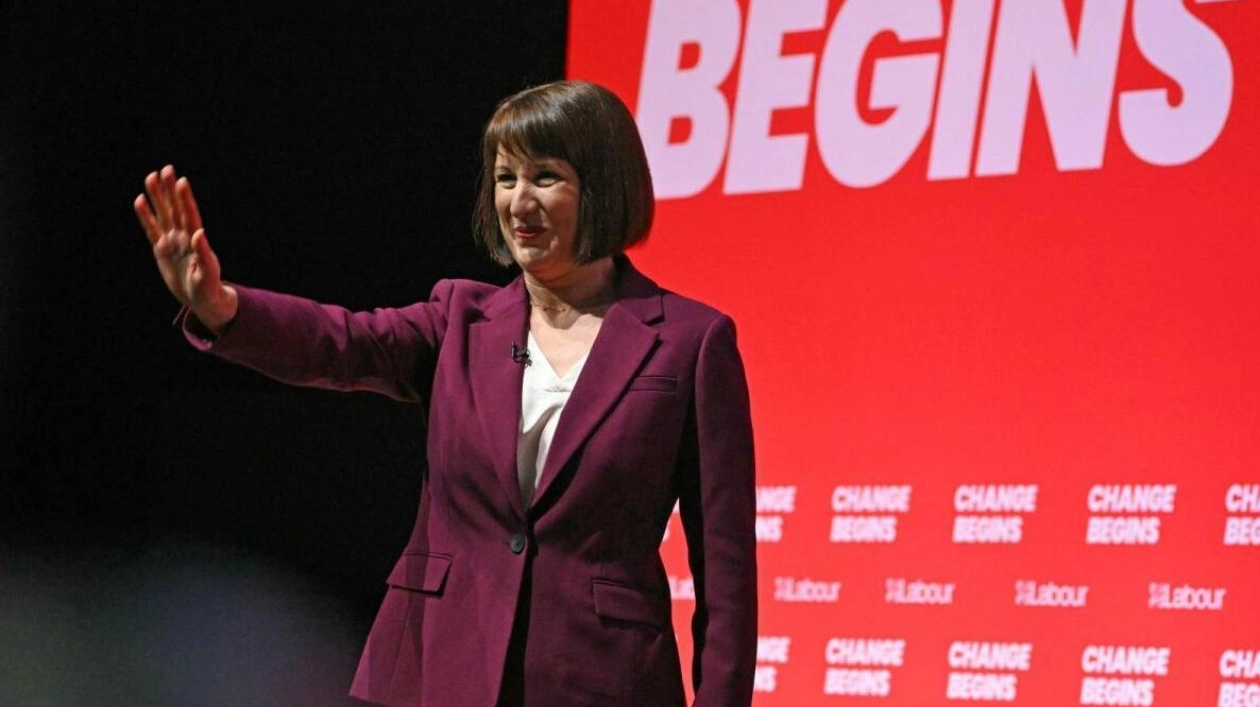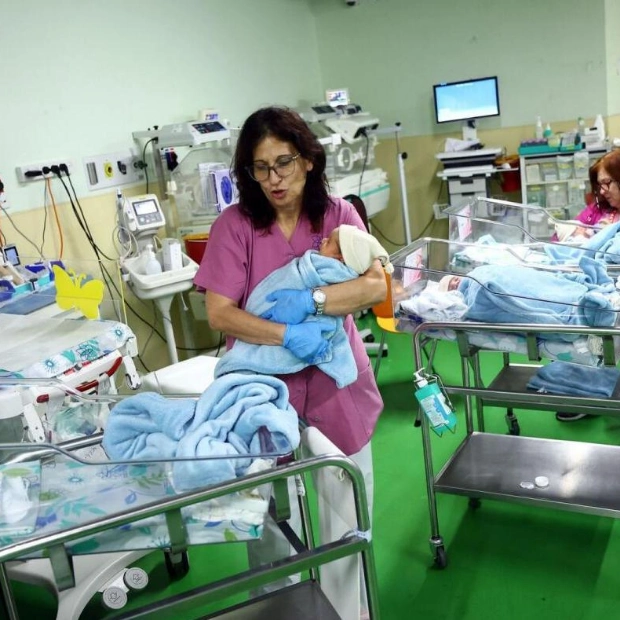British finance minister Rachel Reeves on Monday ruled out a 'return to austerity,' aiming to lift the somber tone her party has maintained since its overwhelming election victory in July. Labour had been tempering expectations by repeatedly informing Britons that the outgoing Conservatives, who implemented a stringent 'austerity' program of cutbacks in response to the 2008 financial crisis, had left a significant gap in public finances, hinting at potential spending cuts. Instead, in her address at the party's annual conference, Reeves painted a hopeful yet vague picture of a Britain enriched by investments in manufacturing and services, where work would offer a decent wage and new generations could flourish. However, she did not provide a timeline for when Britain might experience the growth and new jobs she envisioned, and once more mentioned that she would have to make more difficult decisions, such as her controversial move to cut winter fuel payments for pensioners.
Reeves addressed a crowded conference hall in the northern English city of Liverpool, stating: 'There will be no return to austerity. Conservative austerity was a destructive choice for our public services - and for investment and growth too.' She continued, 'We must deal with the Tory (Conservative) legacy and that means tough decisions. But we won't let that dim our ambition for Britain.' Reeves defended the reduction in fuel payments by highlighting the shortcomings of the previous government, including a 22 billion pound ($29 billion) deficit in public finances. 'I know that not everyone in this hall or in the country will agree with every decision that I make. I will not duck those decisions: not for political expediency, not for personal advantage,' she asserted. 'So believe me when I say: My optimism for Britain burns brighter than ever. My ambition knows no limits because I can see the prize on offer, if we make the right choices now,' she added, announcing the launch of free breakfast clubs for primary school children.
Her more optimistic message appeared to be aimed at boosting morale amid government pressure to explain why ministers accepted donations for clothing. A recent survey showing a plunge in consumer confidence has led to accusations that Reeves and Prime Minister Keir Starmer are harming the economy with an overly pessimistic outlook. Reeves emphasized that avoiding austerity meant, despite some tough decisions, there would be growth in overall public spending under Labour. She reiterated that the government would not raise income tax, National Insurance social security payments, value-added tax, or corporation tax. However, she noted that political stability was crucial for attracting the business investment Britain needed and that, with government debt at 100% of economic output, companies would have to contribute more. In a sign of the challenges ahead, English National Health Service nurses voted on Monday to reject a government pay award for 2024/25. Reeves announced that the government would attempt to recover funds by appointing a COVID corruption commissioner to investigate over 650 million pounds of pandemic contracts awarded by the previous government under exceptional circumstances. Critics argue that these contracts were often awarded to friends and favorites, sometimes for personal protective equipment that proved unusable.






